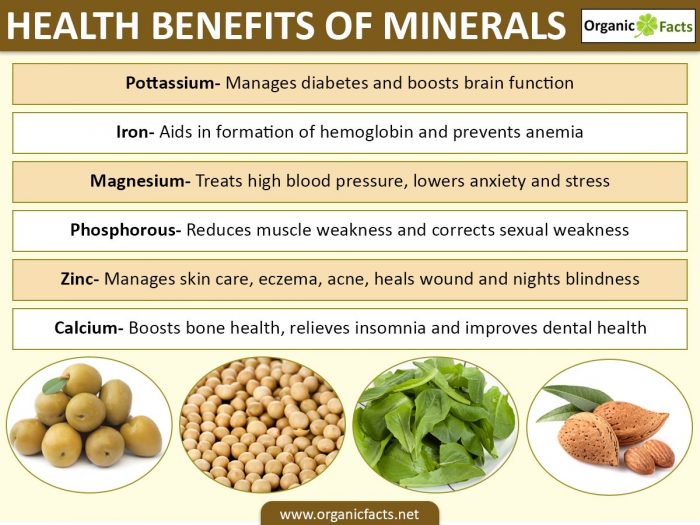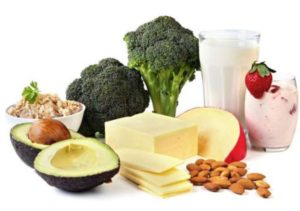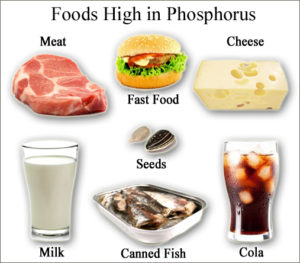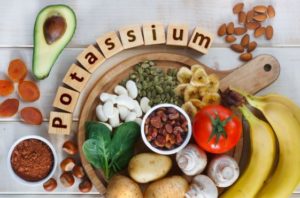Minerals: All The Basics
What exactly are minerals?
Minerals are inorganic substances which occur in nature in things such as rocks, soil and water. They even occur in some plants and animals. Unfortunately, we can’t manufacture minerals in our bodies so we have to get them from our food.
Why do we need minerals?
Minerals have many and varied functions, but some of the most well known are:
- to help us create strong bones
- to help us create strong teeth
- to help us create new blood
- to help us create new skin
- to help us create new muscle tissue
- to help our nervous system to function properly
- to help us convert our food into the energy we need
In short, minerals are vital for creating and maintaining good health.
Different minerals have different functions and they are required in different amounts. Some are needed only in tiny amounts and are therefore known as micro-minerals, or micro-nutrients. They’re also sometimes called trace elements, since the amount we need is so small.

Minerals work in harmony with each other so it’s a mistake to think that taking a supplement of one mineral will solve all our problems. No single mineral can work in isolation, there needs to be a balance, and the best way to ensure the correct balance is to have a healthy and varied diet, including plenty of mineral-rich foods.
Children and older people, as well as pregnant and breastfeeding women have a more specialised requirement for certain minerals, so it’s good to have an understanding of what each mineral does for us.
Be careful if using supplements
 As with all supplements, it’s quite possible to take an overdose. In fact, it’s even possible to take a fatal amount of certain minerals, so it’s very important to take care if you are using supplementation.
As with all supplements, it’s quite possible to take an overdose. In fact, it’s even possible to take a fatal amount of certain minerals, so it’s very important to take care if you are using supplementation.
If you take too much supplementation, or too much of one particular mineral, you could be upsetting the natural balance of your body, and possibly to a dangerous degree. It’s important therefore to have some understanding of which minerals you need, and in what quantities.
Incidentally, if you’re curious about vitamins, there’s lots of information about them in a different article.
Calcium
 You have more calcium in your body than any other mineral. It’s the major component of bones and teeth, and about 99% of the calcium in your body is in the bones and teeth. We are constantly losing calcium through our skin, sweat, nails, urine and faeces, and our bodies cannot produce the calcium it needs to replace it. That’s why it’s so important to eat the right foods so that we can get more calcium that way.
You have more calcium in your body than any other mineral. It’s the major component of bones and teeth, and about 99% of the calcium in your body is in the bones and teeth. We are constantly losing calcium through our skin, sweat, nails, urine and faeces, and our bodies cannot produce the calcium it needs to replace it. That’s why it’s so important to eat the right foods so that we can get more calcium that way.
Dairy products are rich in calcium – these include things like milk, cream, cheese and yogurt. Calcium is also present, though in smaller amounts, in seafood, some green vegetables and other foods, such as tofu. Nowadays, some breakfast foods and cereals have added calcium, as do some other products, such as soya milk, breads and even bottled water. If you drink a liquid fortified with calcium you should be sure to shake the container as it can settle. If you feel you need extra calcium in your diet you can just add a spoonful of powdered milk, which is a good source of calcium.
| Good sources of Calcium | ||
| Milk | Cream | Cheeses |
| Yogurt | Sardines | Tinned salmon |
| Tinned mackerel | Tinned anchovies | Beans |
| Lentils | Almonds | Whey protein |
| Dried figs | Powdered milk | Tofu |
| Rhubarb | Fortified cereals | Greens, e.g. spinach, kale, collard greens |
| Fortified drinks, e.g. milk-based drinks and nut- and seed-based drinks, orange juice | ||
Seeds are a good source of calcium, as well as being nutritionally powerful in other ways; some of them can be high in protein and healthy fats, for instance.
As well as being a good source of calcium, many types of cheese, such as cottage cheese, are also packed with protein. It’s also worth noting that dairy products have additional health benefits; a recent study indicates that they may lower the risk of cardiovascular disease.
Canned sardines and salmon are excellent sources of calcium, due to their edible bones. They also provide high quality protein and omega-3 fatty acids, which are good for the heart, brain and skin.
Among all the nuts, almonds are probably the most valuable, in terms of calcium; an ounce of almonds will provide about 8% of the recommended daily allowance.
Whey protein is an excellent protein source and yet another excellent source of calcium; an ounce provides 20% of the RDA of calcium.
Phosphorus
Phosphorus plays an important role in the health of your kidneys, bones, muscles, and blood vessels, as well as each individual cell, and is the most plentiful mineral in the body, after calcium. It has many uses, including filtering waste and repairing cells.
 Phosphorus is also important in creating nucleic acids and cell membranes, and is involved in energy production. It also helps balance and use vitamins B and D, and iodine, zinc and magnesium. It works toward creating a healthy nervous system and helps in muscle contraction. It even helps reduce pain after exercise.
Phosphorus is also important in creating nucleic acids and cell membranes, and is involved in energy production. It also helps balance and use vitamins B and D, and iodine, zinc and magnesium. It works toward creating a healthy nervous system and helps in muscle contraction. It even helps reduce pain after exercise.
Phosphorus and calcium work together to build strong bones, but they need to be in the right ratio before they can do it. Low levels of phosphorus along with low levels of calcium and vitamin D can result in softer, weaker bones.
It’s unusual to be deficient in phosphorus because most people get plenty in their diet, and it’s actually much more common to have too much in the body rather than too little. Eating too much phosphorus-rich food while being low on calcium can result in more than enough phosphorus, and if levels are too high or too low it can lead to medical problems, including heart disease, joint pain or fatigue.
| Good sources of Phosphorus | ||
| Beer | Milk | Bran cereal |
| Beef | Yogurt | Some cheeses |
| Sardines | Fresh fruit | Beans |
| Tinned tuna | Pork | Chicken |
| Salmon | Turkey | Lamb |
Potassium
 Potassium is essential to life, and is important in maintaining intracellular fluid balance, keeping the nervous system and the muscles functioning properly, and maintaining a healthy heart. Potassium also has a strong relationship with sodium. Going short of a proper intake of potassium for any length of time can lead to serious health problems.
Potassium is essential to life, and is important in maintaining intracellular fluid balance, keeping the nervous system and the muscles functioning properly, and maintaining a healthy heart. Potassium also has a strong relationship with sodium. Going short of a proper intake of potassium for any length of time can lead to serious health problems.
When potassium is dissolved in water, it produces positively charged ions, which allows it to conduct electricity. This is a very useful property since it is important for so many bodily processes.
A potassium-rich diet has many health benefits; it may help reduce blood pressure and water retention, protect against stroke and guard against osteoporosis and kidney stones.
Potassium is the most abundant mineral in the body, after calcium and phosphorus, and like the others it helps create a strong and healthy nervous system and regulates muscle contractions.

Sorry ... MEMBERS ONLY!
UNLOCK FOR FULL EXERCESS!EXERCESS is an online community of people who want to seriously improve their health and fitness, both mental and physical.
JOIN FREE TODAY!
… and get complete and unfettered access to an absolute goldmine of valuable information.
Already a member? Sign in!
